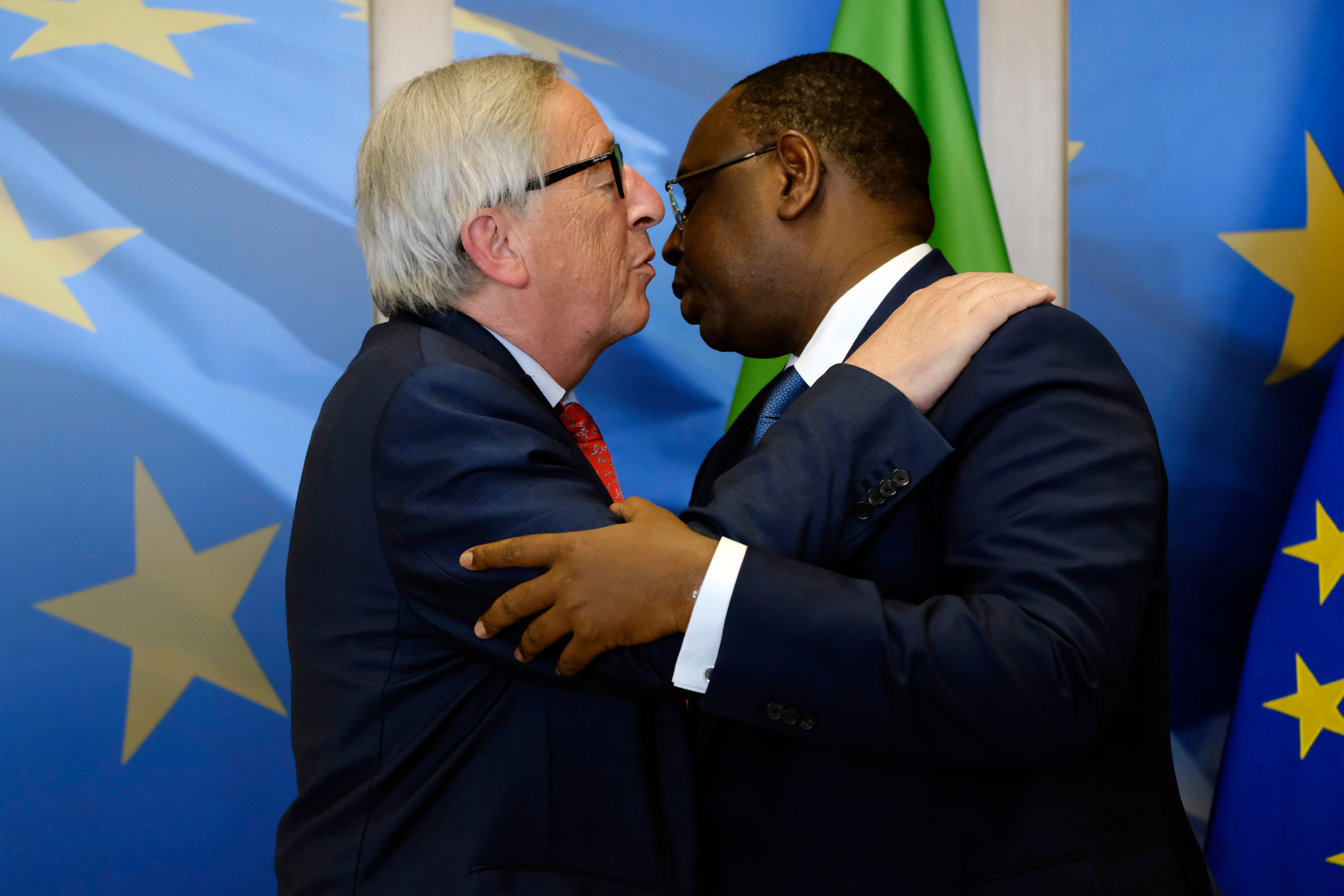Geopolitik
Westafrica and the EU elections

Der ehemalige senegalesische Präsident Macky Sall trifft den ehemaligen Präsidenten der Europäischen Kommission Jean-Claude Juncker
© ShutterstockAs the fog lifts following the European Union elections, the echoes of uncertainty resonates quietly beyond Europe's borders to the shores of West Africa. From Dakar to Abidjan, the EU elections and the results have found little or no resonance among the population at large. What would have been the talk of the town 10 years ago, the huge gains made by right-wing forces and the resulting government crises in France for example, seem to be of secondary importance. At most, there is a sense of insecurity in informed circles, mixed with admiration for the ideals that the European Union has long embodied.
On a continent that is full of promise but also faces countless challenges, the EU is a beacon of hope. The values of stable democracy, tolerance and freedom resonate strongly with African youth. The ability to vote, express themselves freely, travel, learn, work and enjoy social security is not just a European privilege, but a universal desire that many Africans cherish.
The sharp rise in support for far-right parties, particularly among the younger generation, casts doubt on the stability of the values upheld in Europe to date. In Germany, for example, where almost a fifth of 16-24 year olds were found to have voted for the far-right, the discrepancy between aspiration and reality has become very clear.
Ironically, this same demographic cohort in Africa yearns to emulate the opportunities offered by the EU and find a way to escape poverty, gain access to education and secure a future. Their journey, often perilous and fraught with uncertainty, emphasises the stark contrast between the dreams of African youth and the political changes taking place in Europe.
As a possible consequence, Africa could, firstly, see the already existing call for pan-African solidarity and structures intensified. The turmoil on the other side of the Mediterranean reinforces the tendencies felt in the region to strengthen regional alliances and show collective resilience in a world seemingly turned upside down.
Secondly, the cautious reaction of West Africans to the dissolution of the French parliament announced by President Macron on the evening of the EU elections could be seen as an example of a growing disinterest in European domestic politics.
The interest in Europe that has so far emanated from Africa could wane in favour of other players such as China, Russia or Turkey. Greater introspection in and towards the EU, as demanded by right-wing forces, would strengthen the role and influence of the aforementioned third countries in Africa, particularly in the areas of economy and security. The issues that the EU has so far addressed in the areas of migration, security, development cooperation and climate, but also the canon of values upheld by the EU, which West Africa perceives as paternalistic and increasingly instructive, are being put to the test. The upcoming election at the head of the European Parliament and the orientation "to the left" or "to the right" will be decisive in shaping future Africa-EU relations. Between dreams and realities, Africa will continue to observe its neighbouring continent, Europe, with a healthy dose of scepticism and an increasingly self-confident pragmatism.
